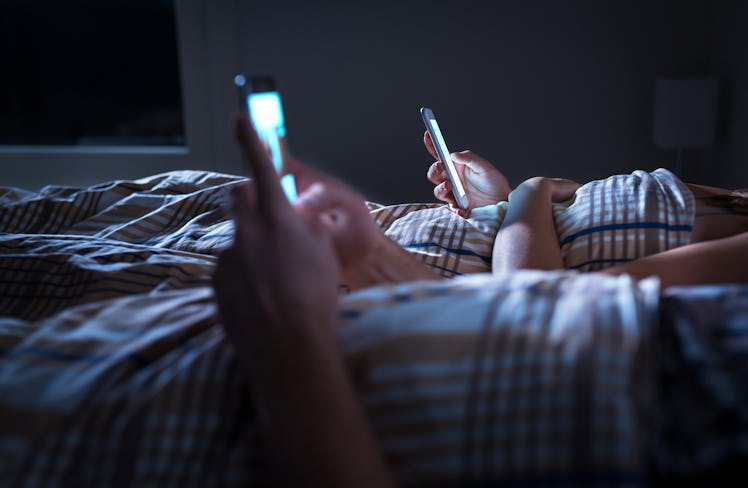
Don’t Worry If Quarantining With Your Partner Has Led To Less Sex
As the coronavirus pandemic continues, most people are living life from the safety of their homes to adhere to the social distancing guidelines recommended by the Centers for Disease Control and Prevention. If you thought all this downtime meant you and your partner would be having more sex, don't be surprised if that's not the case. In fact, the current pandemic could be affecting your sex life in ways you hadn't anticipated. For anyone wondering whether it's normal to be having less sex while quarantined with your partner, the short answer is, yes — changes in intimacy during this time are to be expected. According to Dr. Joshua Klapow, Ph.D., Clinical Psychologist and host of The Kurre and Klapow Show, it's important to remember that everyone responds to stressful and traumatic situations differently.
"The response to stress associated with the coronavirus and the stress of being quarantined can result in decreased or increased sexual desire and activity," Dr. Klapow tells Elite Daily. "It's all dependent on someone's individual response to the pandemic. If both partners view sex as a way to distract from the current situation, relax, experience pleasure, and form a closer bond, then the sexual activity will increase." On the other hand, if the current situation is causing either of you to feel overwhelmed, preoccupied, or anxious to the extent that sex doesn't feel enjoyable, then you may notice you're not having as much sex as you would under normal circumstances, explains Dr. Klapow.
"In an ideal world, both partners are aligned in their emotional reactions to the pandemic and see intimacy as a way, not only to cope, but also to enhance their relationship," says Dr. Klapow. Unfortunately, couples aren't always on the same wavelength. If you or your partner feel like you're having too much or too little sex, the changes you're experiencing are likely a normal response to the current, highly-intense global situation. Some people will use sex as a positive distraction, while others may not be able to get in the mood because of stress. Just know that there's no "right" or "wrong" way to respond.
Dr. Klapow also points out that quarantine-related stress can also impact sexual performance. "Moreover, for either partner, sexual functioning can also be negatively affected," he says. "Performance can be hindered because of feelings of stress, lack of sleep, [or] stress hormones being released into the system."
Having mismatched expectations about sex can be extremely frustrating. But instead of suffering in silence or letting out your frustration in ways that aren't constructive, Dr. Klapow recommends having an honest conversation. "Being clear, compassionate, and open is the best way to convey how too little (or too much) intimacy is making you feel," he says. "Everyone is experiencing the pandemic in different ways. Your partner may or may not be fully aware of how you feel, not just about sex and intimacy, but also how you feel about the pandemic and its impact on your life."
Although it may be tempting to make this a conversation about your needs not being met, it's important to remember that you both deserve to be heard and understood. "This is not a time to demand or reject, but a time to understand where they are coming from," explains Dr. Klapow. "The conversation should be in-depth and focus on their desire, what's specifically making them feel more or less aroused, and how the circumstances (fear of the illness, change in routine, boredom, loneliness) are impacting their desire. Make the conversation deep, not just about sex."
Ultimately, if intimacy with your partner is being negatively impacted by the current pandemic, remember these changes are temporary. To help you and your partner manage fluctuations in intimacy during this time, don't be afraid to talk about it. Having open and honest conversations about how the pandemic is affecting you can not only help improve your sex life now, but also, your communication skills moving forward.
Experts
Dr. Joshua Klapow, Ph.D., Clinical Psychologist and host of The Kurre and Klapow Show
This article was originally published on